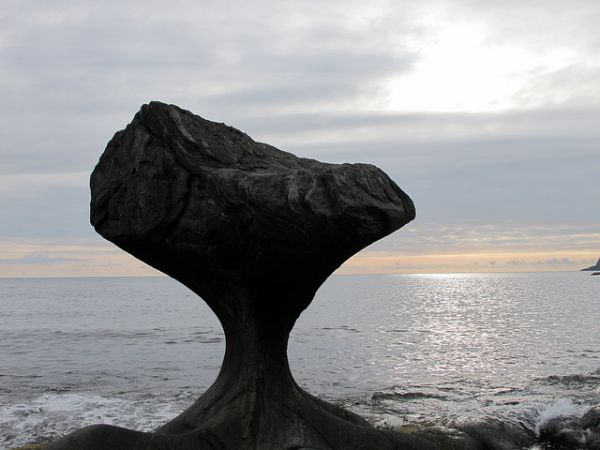John Hagee is a insane lunatic
According to Hagee, "America is becoming a pagan society; we are in a moral free-fall."…
John
Hagee is upset, and that is putting things lightly. He is fuming over
the continued existence of the constructed Other his own religious
thought-world has created. Alright, you say, he’s part of the religio-wingnut whackjobs. Of course he is upset. When are the religio-wingnuts NOT upset?
Good points.
But the teabangelical/teahadist/talibangelical us vs. them worldview
has become increasingly problematic for American society, foisting upon
us a culture war to add to all our other real problems, problems that
have nothing to do with belief, but with fact. Think how much better our
world would be if we could focus some of this time and energy on
addressing problems like education and crime, and the economy and
pollution, or maybe our crumbling infrastructure.
This religious strife isn’t what the Founding Fathers intended. Not
at all. They wanted to free America from the specter of the religious
strife that had haunted Europe for centuries. As Thomas Jefferson
famously wrote, “But it does me no injury for my neighbor to say there
are twenty gods or no god. It neither picks my pocket nor breaks my
leg.”
Hagee, like others among the religio-wingnuts, lacks this spirit of
tolerance. In contrast to Jefferson, Hagee has a “thou shalt not suffer a
witch to live” attitude. He has previously said that we should “outlaw
the practice of witchcraft and Satanism in the US military, lest we
offend the god of Heaven.”
Obviously, such a law is unconstitutional. But the religio-wingnuts
have always seen the Constitution as an obstacle. Rightly, they see the
Wall of Separation as a barrier to their rapacious appetites, with the
result that they want to kick it down. They completely fail to see the
other side of the coin, that the wall protects them from any one
religion legislating itself at the expense of others, and let’s face it:
for all of christian history, nobody has hated christians like other christians. For most of American history, that threat was seen to come
from catholicism. As recently as John F. Kennedy, in fact, just a
half-century ago.
Now Hagee
is saying that “Secular humanism is a pagan god.” According to Hagee, as
Right Wing Watch relates, secular humanism is to blame “for everything from drugs and mental illness to rape and domestic abuse.”
Well of course he thinks this way. After all, it was Moses who
created the true/false distinction in religion, and “false gods cannot
be translated,” as religious scholar Jan Assmann puts it.[1]
Never mind that mental illness and these other crimes and behaviors
are as old as humanity itself, or, that since Hagee believes his god
created humans, can therefore all be laid at god’s own door.
Let’s face it: there was no secular humanism in the ancient world,
but ancient Israel suffered mental illness, drugs, rape and domestic
abuse just as did Pagan cultures, including the christian Roman Empire
and its spiritual descendents – America included.
You would think, listening to Hagee, that christian Europe between jesus and the secular European Enlightenment was a Kingdom of god on
earth: a paradise. It was anything but. It was a many centuries-long
nightmare for those in Europe who failed to toe the line (Pagans, jews,
and “heretics”) and no better for those non-christians outside Europe
(Pagans, muslims and others, including Native Americans) who were
visited by crusades to forcibly convert them.
Yet Hagee proclaims: “America is becoming a pagan society; we are in a moral free-fall.”
When the Boy Scouts of America are censored and penalized
for refusing to accept homosexual scout leaders, we are a pagan nation
without shame…we have endorsed sodomy and called it an alternative
lifestyle. It’s not an alternative lifestyle; it was, is, and always
shall be an abomination unto the lord.
And the thing is, Hagee and his co-religionists are all free to
separate themselves from the practice of sodomy. If they really believe
what they say, they would not use drugs or beat their wives and children
(though they would hand their daughters over to rapists). Far from it,
if their children showed disrespect for parental authority, they would
drive the ungrateful little bastards into the street and stone them to
death. That’s what god wants, after all. The bible says so and we know
the bible is the inerrant word of god. Hell, they should be stoning each
other for shaving and wearing the wrong clothes and eating the wrong
foods.
The fact is, the First Amendment, inconveniently for Hagee, agrees
with Jefferson’s outlook, specifying that there shall be no laws enacted
that establish religion. Not your religion, not my religion. Not
Hagee’s religion (whatever that is). Not any religion.
Government must be above and separate from religion establishments.
You wouldn’t know that, of course, to listen to the religio-wingnuts with their claim that America was established by and for christians.
Look at their claim that some religions do not deserve First
Amendment protections. Islam is not a religion they say, but a cult, and
therefore not protected. Islam is the world’s second largest religion.
If Islam is not a religion, every other religion in the world outside of christianity is a cult, with the result that the ONLY religion
protected by the First Amendment is christianity.
Neat trick, is it not? Be default, America becomes not only a christian nation demographically but officially. The Constitution is
turned into toilet paper and the religio-wingnuts gets everything they
want.
We Americans really should not be divided by religion. With all the
other things we have to deal with, our personal beliefs should not be a
subject of contention. Two opposite points are true and deserve notice
here:
- If there were NO belief in a god or gods, we would not be suffering
religious strife. This statement speaks for itself; what more needs be
said?
- If there was a belief that all gods exist (polytheism), we
would not be suffering this strife. Pagan religions are not “for
export.” There is no idea of a universal “truth” that is true for all.
Pagan religion, as ethnic religion, is linked closely to the culture in
which it exists. “They think of their religion as true, but they don’t
think of it as uniquely true; in particular they don’t think of it as
something for export,” observed noted anthropologist Raymond Firth.[2]
It is the “in between” distinction that is the problem, what Jan
Assmann calls the Mosaic Distinction: the idea that there is one god and
that he has “revealed” himself to us through divine commandments and
threatened us with destruction should we fail to obey (the true/false
distinction noted above). Bad enough if there was only ONE monotheism to
deal with, but we were unlucky enough to get three: judaism, christianity, and islam, all of whom claim sole and unique access to
this god and whose end-time scenarios each demand destruction of the
others.
The contrast between these religious outlooks is startling: There
were a great many things ancient polytheistic peoples fought over, but
religion was not among them. Because if all gods exist, your god and my
god, what is there to fight over? And if you look at ancient history,
you don’t find crusades and jihads and inquisitions.
It wasn’t that people didn’t feel their gods helped them; they just
didn’t feel the need to force everybody to believe in their gods; such a
effort is silly if your enemy’s god is known to exist. The Romans
devastated Israel in the jewish Revolt (CE 66-73) but they never made judaism illegal as a result. Nobody questioned the jewish god’s
existence. Polytheists (what jews thought of as Gentiles and christians
as Pagans) questioned the efficacy of worshiping just one god but nobody
thought to make that illegal.
As Jan Assmann has persuasively argued, ancient polytheism was a
means of translation between cultures – an “ecumene of nations” as he
puts it. All gods exist and different cultures can identify with each
other’s gods, seeing the same gods with different names or aspects. It
was not until the arrival of monotheism that “Paganism” was invented,
insofar as anything that was outside of monotheism was seen as the
“Other.”
Jan Assmann correctly identifies monotheism as “counterreligion” as
opposed to religion, “because it not only constructed but rejected and
repudiated everything that went before and everything outside itself as
‘paganism.’”[3] Regina Schwartz argues that “Violence is not only what
we do to the Other. It is prior to that. Violence is the very
construction of the other.”[4] As Bart Ehrman notes, “basic tolerance
was one of the central aspects of ancient Greco-Roman religion…There was
no reason that everyone should worship the same gods any more than
everyone should have the same friends. All the gods deserved to be
worshipped in ways appropriate to them.”[5]
And as Jonathan Hirsch says: “Nothing in human nature…suggests the
inevitability of the notion that there is only one god.”[6] Some argue
that there is nothing in human nature that suggests any god at all.
We should be able to get along despite our different beliefs, whether
our belief is that there are many gods or no gods or just one. In the
America of the Constitution, christians are free to worship their one
god, just as free as muslims are to worship their idea of the one god,
just as free as polytheists are to believe in all the gods, and just as
free as atheists are to believe none of them exist.
It is the Religio-wingnuts that has made this war in contravention of
the U.S. Constitution. Most christians, like most christians throughout
history, are able to live side by side with their neighbors, whatever
their beliefs, just as are most muslims, atheists, and Pagans. We didn’t
want this war, but we cannot afford to lose it, because to lose it is
to lose America itself.
Notes:
[1] Jan Assmann, “The Mosaic Distinction: Israel, Egypt, and the Invention of Paganism,”
Representations 56
(1996), 48-67. For Pope Benedict XVI’s objections to Assmann’s thesis
see Joseph Cardinal Ratzinger, Truth and Tolerance. Christian Belief and
World Religions (San Francisco 2004), 210-214, 221-222.
[2] Raymond Firth, “Conversion from Paganism to Christianity,
RAIN 14 (1976), 3-7.
[3] Assmann (1996), 48-67.
[4] Regina Schwartz,
The Curse of Cain: The Violent Legacy of Monotheism (University of Chicago Press, 1997), 5.
[5] Bart D. Ehrman,
The New Testament. A Historical Introduction to the Early Christian Writings, Third Edition, (Oxford University Press, 2004), 30.
[6] Jonathan Hirsch.
God Against the Gods: The History of the War Between Monotheism and Polytheism (NY: Viking Compass, 2004), 1-2.

































